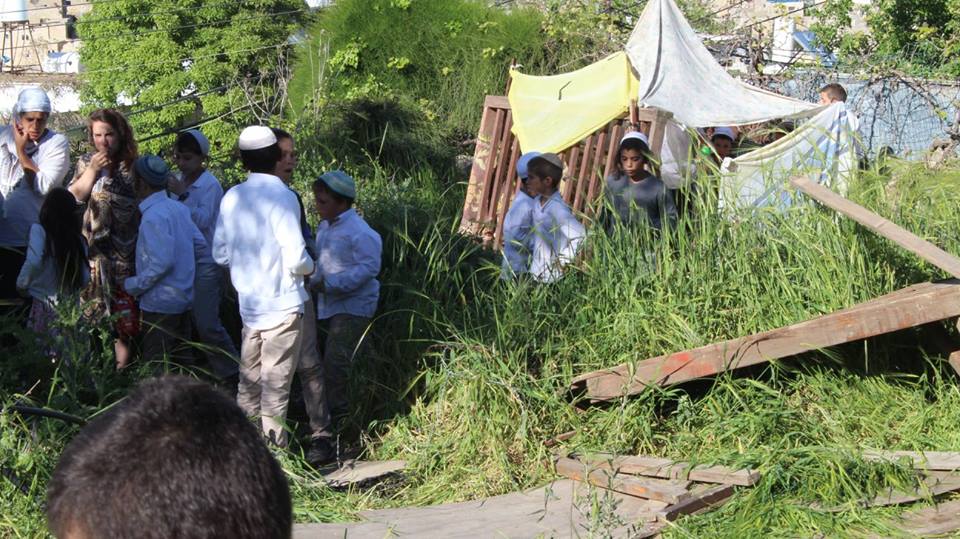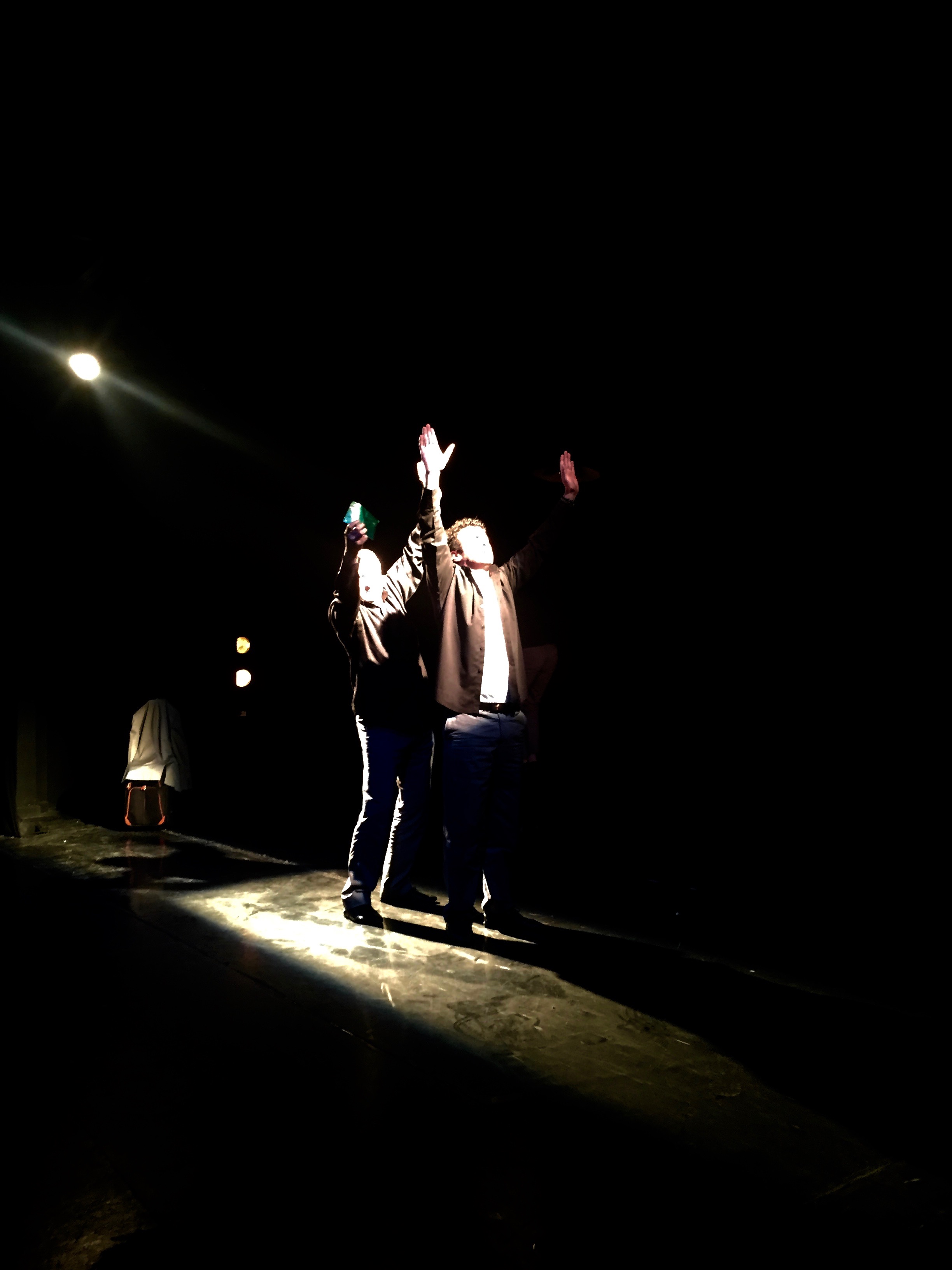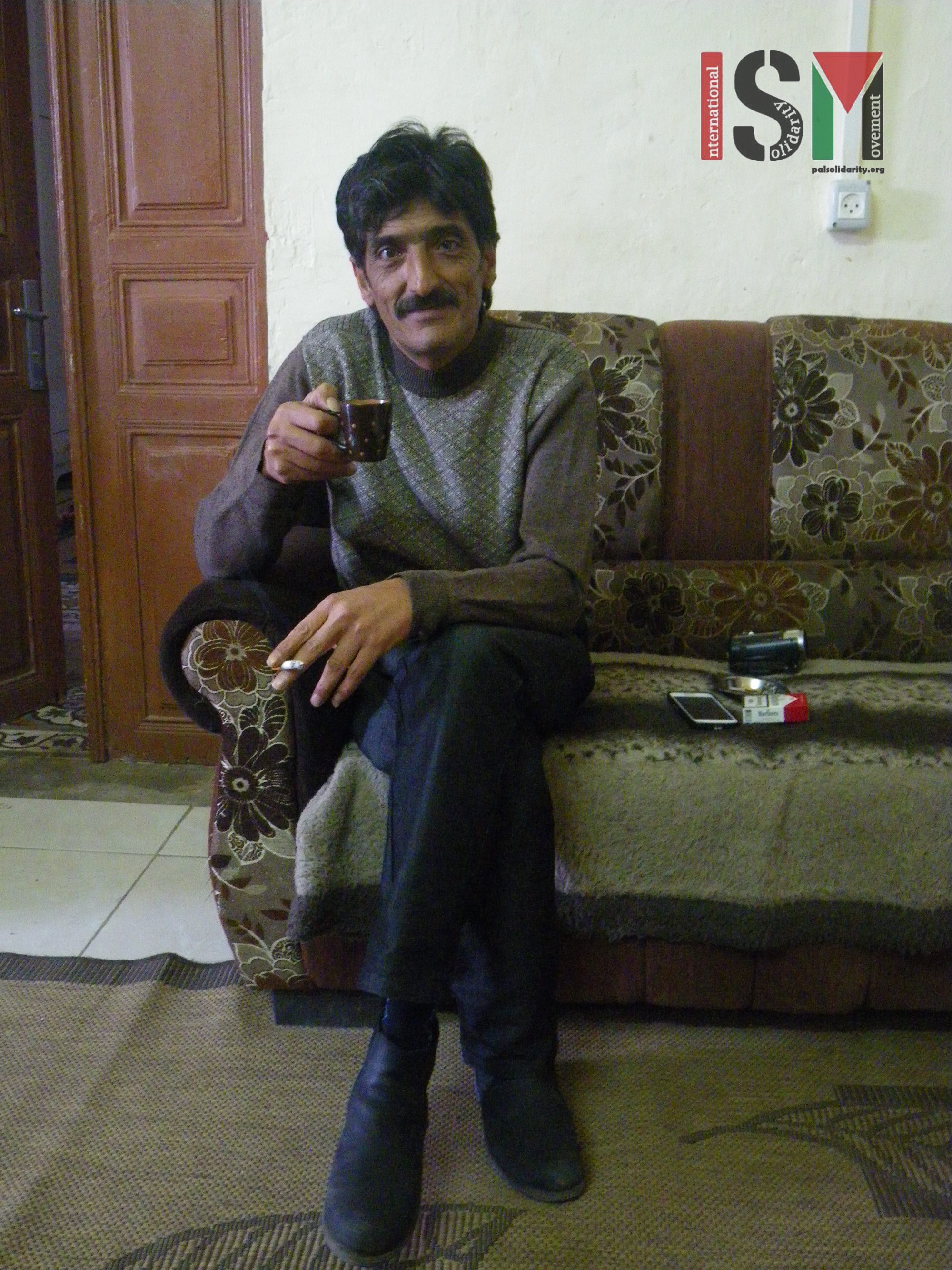Category: Hebron
-
Settlers expropriate Palestinian garden as police stand by
4th April 2016 | International Solidarity Movement, al-Khalil team | Tel Rumeida, al Khalil, occupied Palestine On Saturday 3rd of April 2016 settlers entered land belonging to Muhammad Abu Haikal in the Tel Rumeida area of Hebron on the occupied West Bank in Palestine. The settler children built a tent and then brought other settlers…
-
Yes Theatre: Resisting occupation through theatre and socially engaged art practice
3rd April 2016 | International Solidarity Movement, al-Khalil team | Hebron, occupied West Bank The Yes Theatre in Al-Khalil works with dedication, for a brighter future for the Palestinians in the occupied West Bank through a diverse set of cultural activities. Roughly eight new productions every year reach an audience of over thirty thousand Palestinians, and on…
-
A night of protective presence needed
3rd April 2016 | International Solidarity Movement, al-Khalil team | al-Khalil, occupied Palestine The two boys met us at the store, shouting the name of our Palestinian contact and waving us along. The cobbled stones in the alley made a nice contrast to the darkness of the night. My feet landed softly on the mud…



